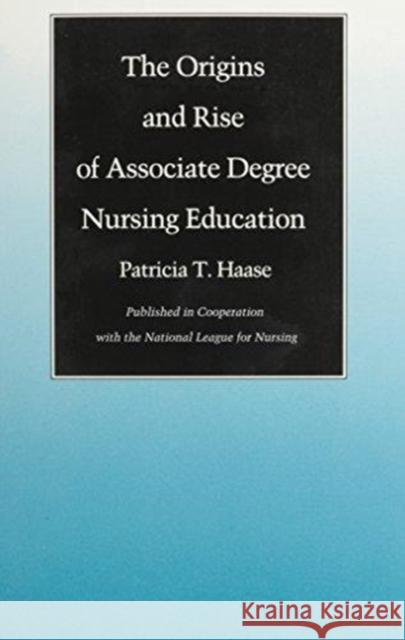The Origins and Rise of Associate Degree Nursing Education » książka
The Origins and Rise of Associate Degree Nursing Education
ISBN-13: 9780822309918 / Angielski / Miękka / 1990 / 223 str.
The Origins and Rise of Associate Degree Nursing Education
ISBN-13: 9780822309918 / Angielski / Miękka / 1990 / 223 str.
(netto: 93,05 VAT: 5%)
Najniższa cena z 30 dni: 96,71
ok. 22 dni roboczych.
Darmowa dostawa!
"The Origins and Rise of Associate Degree Nursing Education" offers an analytical history of the beginnings and development of associate degree nursing (ADN) programs and the role of the caregivers it produces in the health care system. Nurses may be trained in two-, three-, or four-year programs, but all are eligible to take the accreditation examination to be licensed as registered nurses (RNs). The question of distinguishing between "professional" nurses from bachelor programs and "technical" nurses from the associate degree programs has become an important and controversial issue in nursing.
Advocates have long contended that the associate degree nurse is vital to the American health care system. This study, funded by the W. K. Kellogg Foundation, confirms this view. In recent years the Foundation has invested more than $6.1 million in the development of the ADN, awarded by junior and community colleges. Many participants in the ADN projects for the Kellogg Foundation have noted that, despite the importance of the ADN and the controversy about its place in nursing education, the literature is scattered and hard to identity. "The Origins and Rise of Associate Degree Nursing Education" and the companion bibliography will provide much-needed information to educators, hospital and nursing administrators, nursing leaders, and public policy makers--all of whom must cope with the growing nursing shortage and increasingly difficult issues in health policy and administration.











